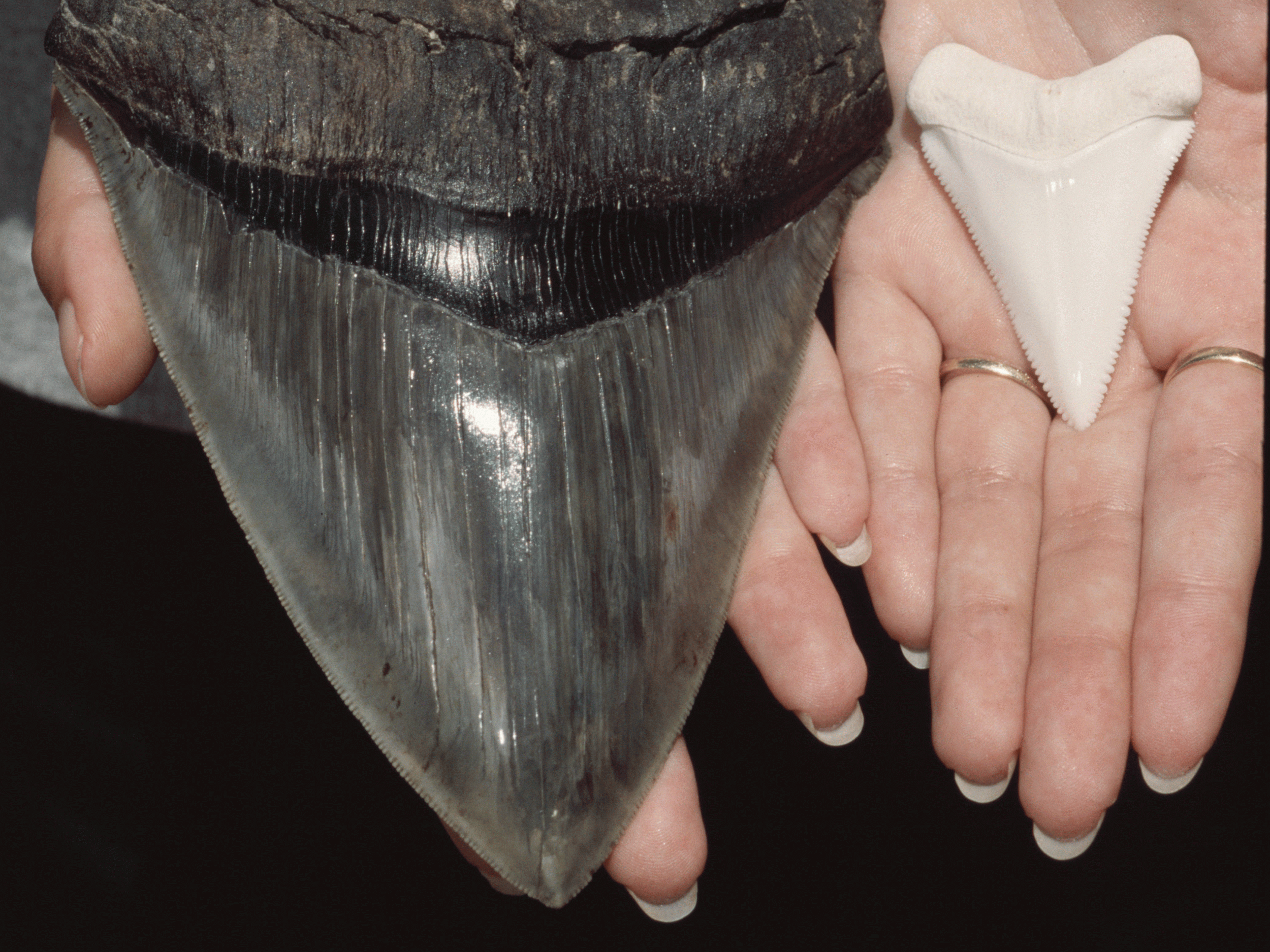Six-inch long teeth of ancient Megalodon shark found on North Carolina beach
The shark was believed to have roamed the seas about 15 million years ago, but its fossil record is incomplete

Your support helps us to tell the story
From reproductive rights to climate change to Big Tech, The Independent is on the ground when the story is developing. Whether it's investigating the financials of Elon Musk's pro-Trump PAC or producing our latest documentary, 'The A Word', which shines a light on the American women fighting for reproductive rights, we know how important it is to parse out the facts from the messaging.
At such a critical moment in US history, we need reporters on the ground. Your donation allows us to keep sending journalists to speak to both sides of the story.
The Independent is trusted by Americans across the entire political spectrum. And unlike many other quality news outlets, we choose not to lock Americans out of our reporting and analysis with paywalls. We believe quality journalism should be available to everyone, paid for by those who can afford it.
Your support makes all the difference.The fossilised teeth of a giant ancient shark have washed up on beaches in North Carolina.
Six-inch long teeth from the Megalodon, a prehistoric shark which roamed the oceans 15 million years ago, were found by beach-goers at Topsail Beach and Surf City.
Beach dredging and recent rains on the sands may have exposed the fossilised teeth, telling the tale of of a 60-foot (18 metre) creature.
Cynthia Crane, Aurora Fossil Museum director, told WITN: "Megalodon was this large, humongous shark that roamed the ancient sea waves during the Miocene and Pliocene time."

The name Megalodon was first given in 1843 by Swiss-born biologist Louis Aggasiz.
Other tooth findings indicate that the Megalodon weighed up to 30 times as much as today's Great White Shark at a hefty 70 to 100 tons.
But its fossil record is incomplete and when it became extinct is unclear, according to livescience.com.
There are some conspiracy theories that the species survives to this day, which is not backed by science but was perpetuated by fictional novels such as Steve Alten's "Meg: A Novel of Deep Terror" and Discovery Channel's fictional-documentary in 2014.
Another tooth was found this summer in a Croatian river, according to the Mail Online.
Join our commenting forum
Join thought-provoking conversations, follow other Independent readers and see their replies
Comments